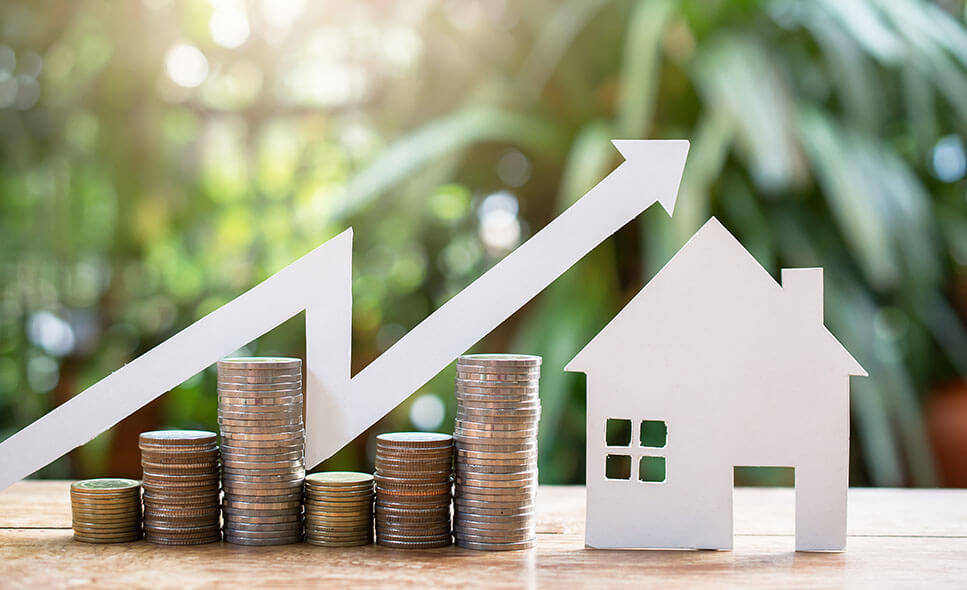Thinking about refinancing a mortgage? You’re not alone. According to Freddie Mac, mortgage refinancing activity roughly doubled in volume during the first part of 2020 when compared to the previous year. While most of this was likely attributable to homeowners looking to take advantage of historically low mortgage rates, there are a number of reasons for refinancing a home. Before you embark on the journey of refinancing your mortgage, it’s imperative you understand your own reasons for doing so.
Refinancing a Home, DefinedIn the simplest of terms, refinancing a mortgage entails taking out a new loan to pay off the original loan that was used to buy a home. Typically, mortgage refinancing loans fall into three different categories: rate and term, cash out, or cash in.
● Rate-and-Term Refinancing: Homeowners opt for rate-and-term refinance loans to lower their interest rate without changing the amount of the total loan. For some, this means securing a fixed-rate mortgage in lieu of one with an adjustable rate. This type of loan is often used to lower a monthly mortgage payment or reduce the amount of total interest paid over time.
● Cash-Out Refinancing: Cash-out refinance loans give homeowners an opportunity to leverage the equity in their home for cash in hand. This is a common loan option for homeowners that are looking to pay down other debts or invest in home improvement and renovation projects. Cash-out refinancing will always result in a higher loan.
● Cash-In Refinancing: A less common route than rate and term or cash out, cash-in refinance loans enable homeowners to reduce their mortgage balance by paying it down with cash. Homeowners choose this option to lower their interest rate and eliminate the cost of private mortgage insurance.
Benefits of Refinancing a MortgageUnder the right circumstances, refinancing a home has many potential upsides, including a lower monthly payment, a better lifetime interest rate, faster loan repayment, and cash on hand.
● Lower Payments: One of the most common reasons homeowners choose to refinance is to lower their monthly mortgage payments. Depending on what kind of interest rate and loan terms you are able to negotiate, you could reduce your payments by more than$150 per month. Additionally, paying off enough of the principal loan or owning property that’s appreciated in value could exempt you from paying for private mortgage insurance.
● Better Interest Rates: Homeowners in search of more predictability may refinance their home in an effort to trade an adjustable-rate mortgage for a fixed-rate loan. Securing fixed interest can lock you into the same rate throughout the span of your mortgage. This means you can reliably expect the same monthly payment. While certainty has its benefits, it’s important to note that fixed-rate mortgages can come with a premium. But for a lot of homeowners, the predictable nature of a consistent mortgage payment justifies a higher mortgage rate when compared to adjustable-rate options.
● Faster Loan Repayment: For many first-time homebuyers, a 30-year mortgage makes the most financial sense. As they advance in their careers and earning potential, however, they’re more likely to benefit from reduced loan terms. Refinancing can help you pay your mortgage down faster while lowering the amount you’ll spend on interest over the lifetime of the loan.
● Cash on Hand: As the value of your home increases, you may find yourself with enough equity to cash out. Many homeowners use this infusion of cash to pay down other debts, fund large purchases, or invest in home improvement projects. As mentioned above, cash-out refinancing will result in a higher overall loan amount.
Risks of Refinancing a MortgageRefinancing a home can have its benefits, but it’s not the best option for all homeowners. Potential risks include paying more interest over time, increasing the overall loan amount, and taking a hit to your credit score.
● Higher Lifetime Interest: Before you refinance, be sure to do the math. In some cases, lengthening your loan term for a lower monthly payment can result in more interest paid over time. A mortgage refinance calculator can help you get a better idea of whether refinancing is the right option for you.
● Higher Loan Amount: It’s been said a few times, but it’s worth repeating: Cash-out refinancing will result in a higher loan amount. As a result, you could end up with a higher monthly payment.
● Lower Credit Score: In some cases, closing an old mortgage loan and replacing it with a new one can impact your length of credit history. This may cause your credit score to drop a bit after refinancing a mortgage.
What Do I Need to Refinance a Home?You’ve weighed the pros and cons and decided refinancing your mortgage makes smart financial sense. But now what? The good news is that this should be fairly familiar territory. The process of refinancing your mortgage is a lot like the process you underwent when applying for your original loan. You’ll need healthy credit, financial documentation, and a qualified lender to pull it all off.
Crunch the NumbersWhen shopping around for a mortgage refinance loan, you should be intimately familiar with your credit score. But those aren’t the only numbers you should have on hand. You should also know your debt-to-income ratio and the amount of equity in your home. Additionally, you should have a good handle on the costs associated with refinancing a mortgage. Pay close attention to the cumulative cost of fees, as these can add up fast. Ideally, refinancing your mortgage will lead to improved financial wellness.
For more resources, visit our online mortgage center.

